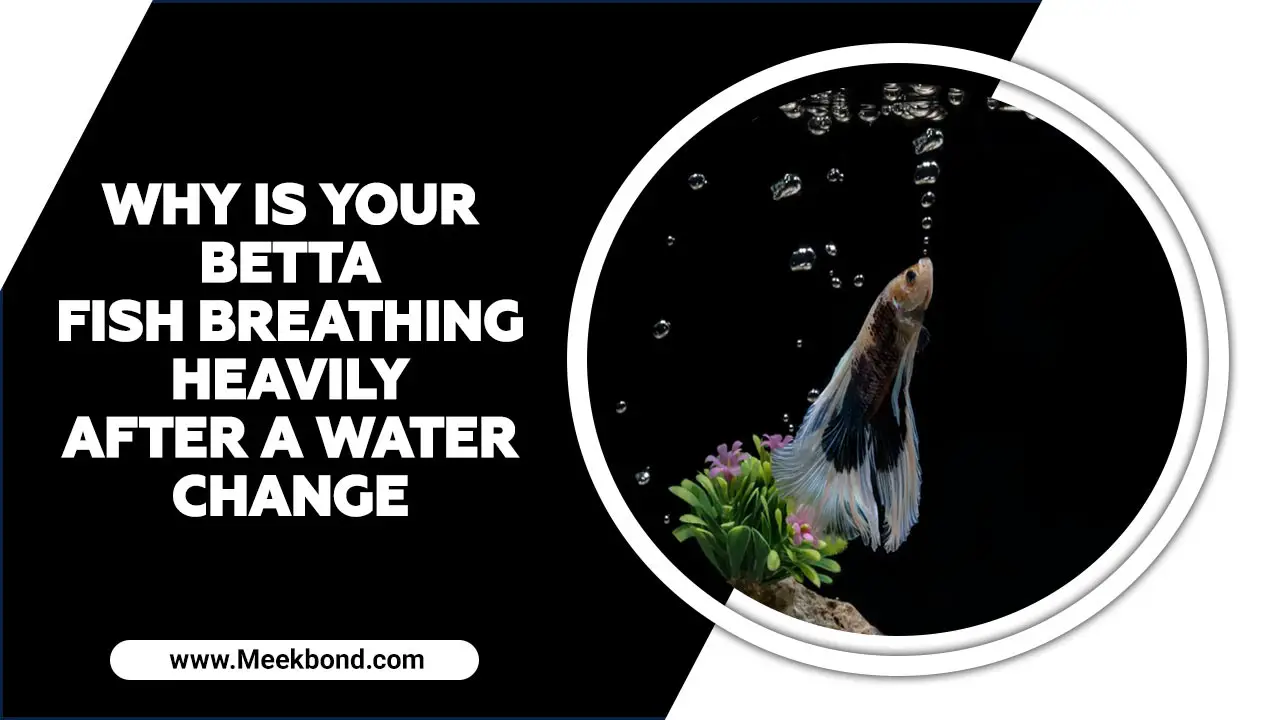Betta fish, or Siamese fighting fish, are vibrant and beautiful freshwater fish popular among hobbyists. They are native to Southeast Asia and are known for their long, flowing fins and striking colors.
Betta fish are relatively small, typically growing to about 2-3 inches long. They are best known for their aggressive behavior, especially the males who tend to fight with other males. Because of this aggression, betta fish are usually kept alone in aquariums or tanks with calm, non-aggressive tank mates.
With the proper care and environment, betta fish can live for several years and make stunning additions to any aquatic collection. Here we will delve into why betta staying at top of tank and solutions. So, if you’re concerned about your betta’s unusual behavior, read on to learn how you can help them get back on track.
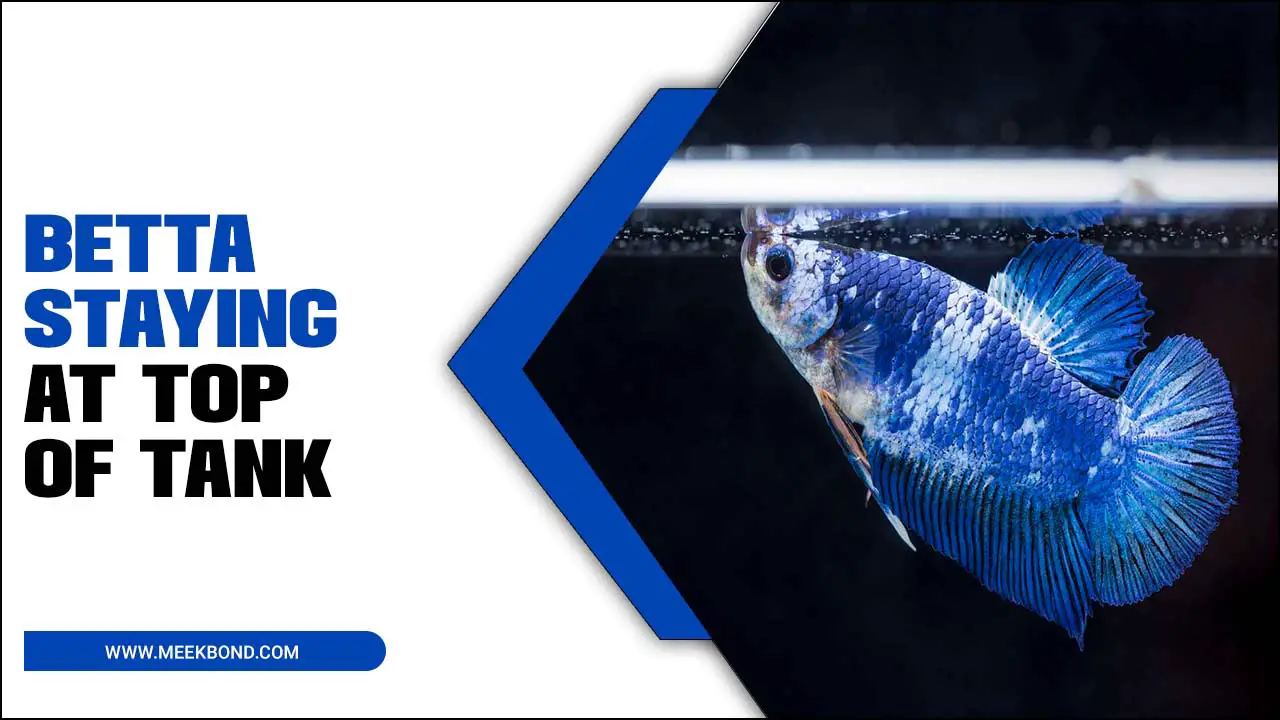
Unraveling The Reasons: Why Betta Staying At Top Of Tank
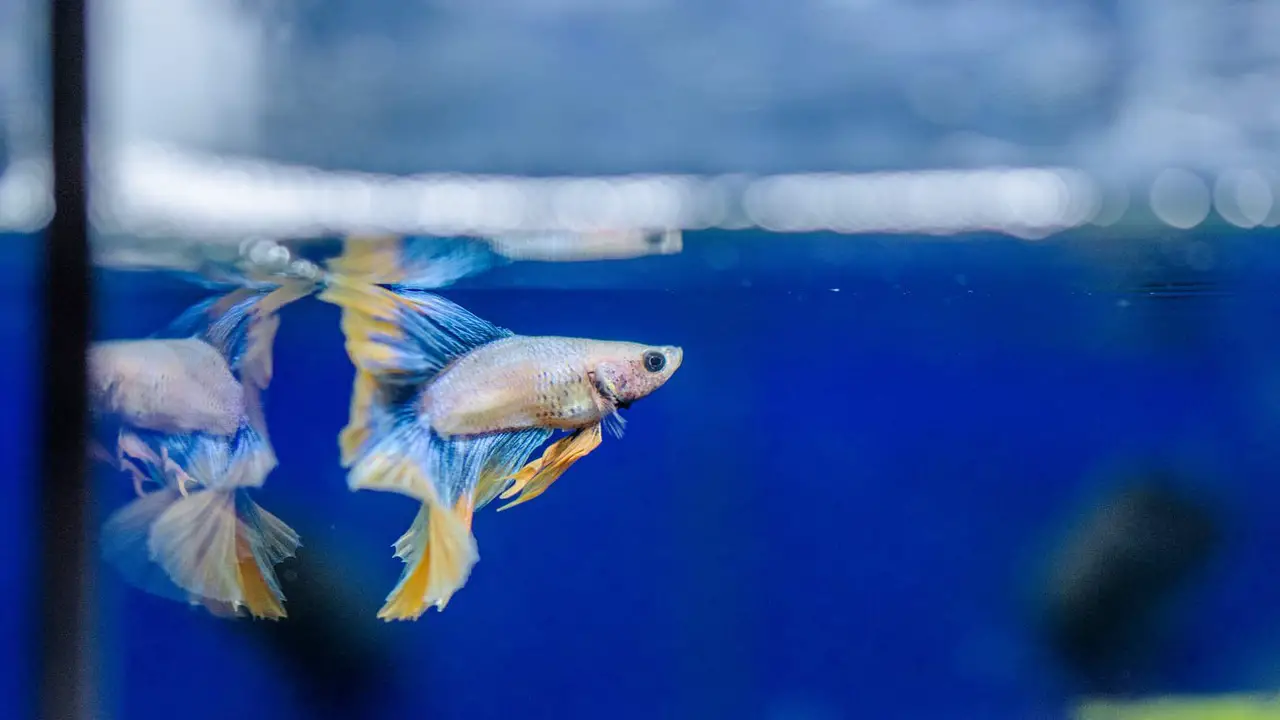
Betta fish may stay at the top of the tank due to several reasons. They have a labyrinth organ that allows them to breathe air, which can make them stay at the water’s surface. Poor water quality or inadequate oxygen levels can also cause bettas to stay at the top.
Overfeeding or incorrect food choices can lead to digestive issues that make bettas float or stay near the surface. Stress from aggressive tank mates or inappropriate tank conditions can also be a factor.
To prevent this behavior, maintain good water quality, provide adequate oxygenation, offer a varied and appropriate diet, and ensure a safe tank environment. Below we discuss more in detail why betta staying at top of tank.
Oxygen Deprivation- A Silent Threat
Betta fish, being air-breathers, require access to surface air. Unfortunately, oxygen deprivation can occur when the tank water is not properly oxygenated, leading to bettas staying at the top of the tank. This can also be caused by overcrowding or overfeeding, which depletes oxygen levels.
To combat this silent threat, consider adding live plants to increase oxygen production, aerating the water using an air stone or pump, and conducting regular water changes. By prioritizing proper tank maintenance and ensuring adequate oxygenation, you can prevent bettas from experiencing oxygen deprivation and promote their overall health.
Poor Water Quality And Inappropriate Tank Conditions
Poor water quality and inappropriate tank conditions can significantly impact bettas. When the water quality is poor, bettas may stay at the top of the tank due to a lack of oxygen. Additionally, overcrowding or inadequate hiding spots may cause stress, leading to bettas staying near the surface.
It’s important to remember that bettas have a labyrinth organ that allows them to breathe air, so they may naturally prefer to stay in the upper levels of the tank. To encourage bettas to explore all tank levels, providing a clean and properly filtered environment with ample hiding spots and plants is crucial.
Regularly monitoring water parameters and making necessary adjustments will ensure a healthy and comfortable habitat for your betta fish.
Overcrowding: When Betta Needs Space
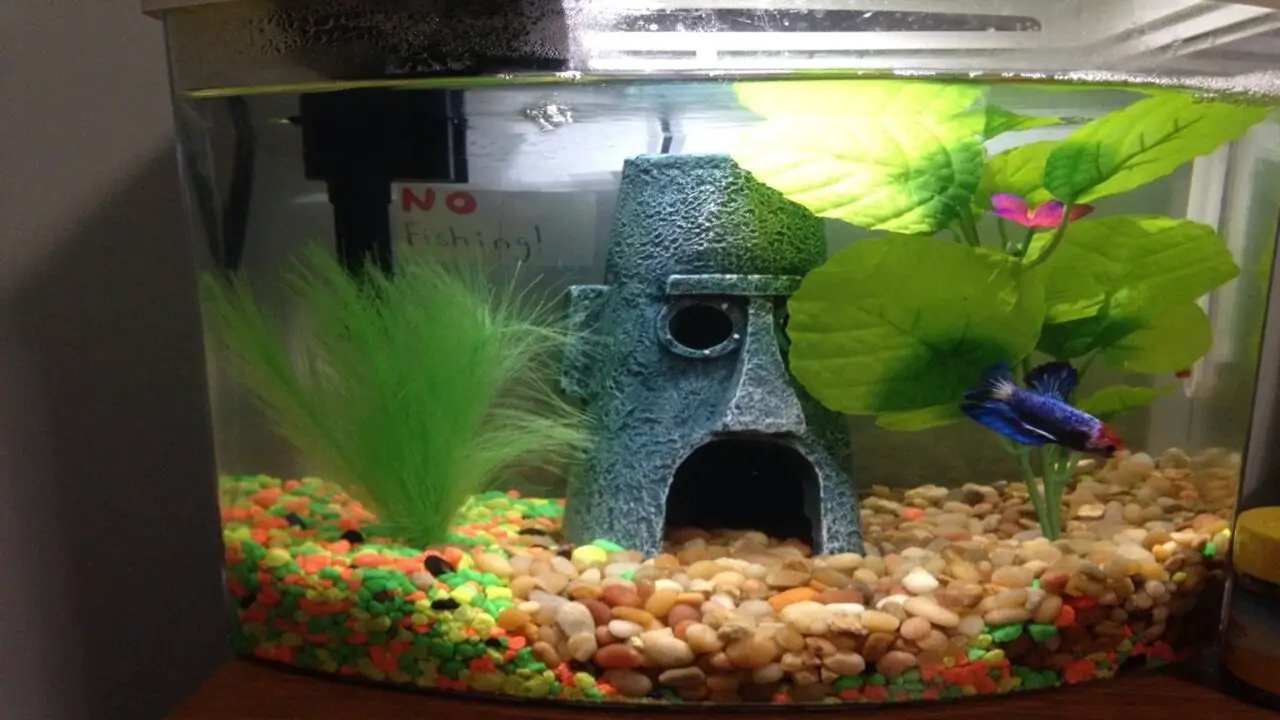
Bettas, being solitary fish, require enough space to move around freely. Overcrowding can lead to stress and discomfort, causing bettas to stay at the top of the tank. To ensure the well-being of your fish, it’s important to ensure that the tank size is appropriate for the number of fish.
Adding hiding spots and plants can also provide bettas with security and privacy. Regular water changes and proper filtration are essential to maintain water quality and prevent overcrowding.
Swim Bladder Disease: A Hidden Ailment
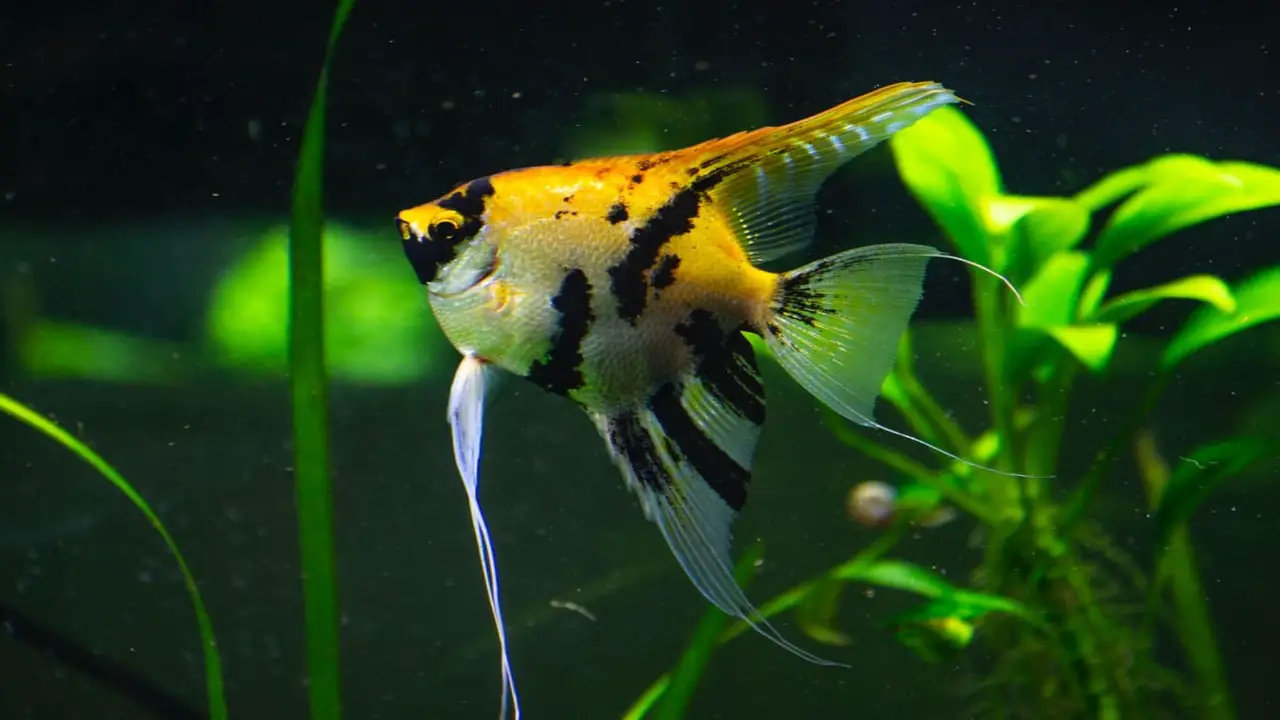
Swim bladder disease, a common ailment among bettas, can cause them to stay at the top of the tank. This condition leads to excessive floating or sinking due to issues with the swim bladder. Several factors can contribute to swim bladder disease, including overfeeding, poor water quality, and physical damage.
Treatment for this hidden ailment involves changing the betta’s diet, performing regular water changes, and using appropriate medication. To prevent swim bladder disease, it is crucial to maintain good water quality, feed smaller amounts, and create a stress-free environment. For severe cases, consulting a vet is recommended.
Hunger
Hunger is a physiological sensation that occurs when the body needs nourishment. It is the body’s way of signaling that it requires food to provide energy and nutrients. When a person feels hungry, they may experience symptoms such as stomach growling, lightheadedness, and difficulty concentrating.
Hunger can be triggered by various factors, including an empty stomach, low blood sugar levels, or the body’s natural circadian rhythm. It is essential to properly fuel the body with a balanced diet to maintain good health and prevent malnutrition. To satisfy hunger, it is recommended to consume nutritious meals and snacks that include a combination of carbohydrates, proteins, and healthy fats.
This can help provide sustained energy and keep hunger at bay. It is important to differentiate between true hunger and emotional or psychological cravings, which can lead to overeating or unhealthy food choices. Being mindful of one’s eating habits and listening to the body’s hunger cues can help maintain a healthy relationship with food.
Remedial Measures- Ensuring Your Betta Fish’s Well-Being
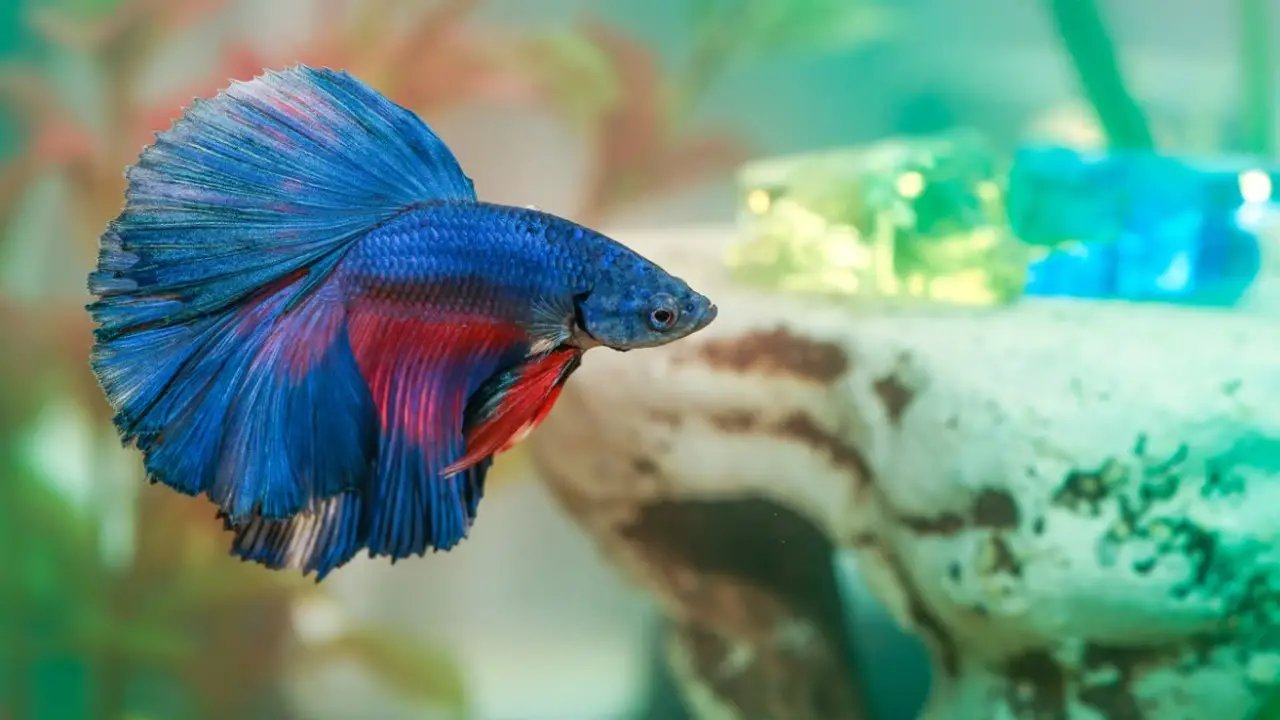
To ensure the well-being of your betta fish and prevent them from staying at the top of the tank, you can take several remedial measures. Oxygen deprivation and water temperature fluctuations are two common reasons bettas may exhibit this behavior.
Regular tank maintenance, such as water changes and maintaining a consistent temperature, is essential for preventing this issue. Providing hiding places and plants in the tank creates a more comfortable environment for your fish. Adding an air stone or filter can improve oxygen levels. Seek guidance from a veterinarian or pet store professional for optimal betta fish conditions.
Enhancing Oxygen Levels: Breathing Life Back Into Your Tank
If you notice your betta fish staying at the top of the tank, gasping for air, it may indicate low oxygen levels. To enhance the oxygen levels in your aquarium, consider adding live plants or an aerator to increase the oxygen supply.
Airstones can also be effective in boosting oxygen levels in the water. Additionally, ensure that the water temperature suits your betta fish, as warm water holds less oxygen. Regular water changes can help maintain optimal oxygen levels in the tank.
Perfecting Water Parameters And Tank Conditions
Maintaining optimal water temperature and pH levels is crucial for the health of betta fish. Consistent water changes and regular tank cleaning are essential to keep the tank conditions in check. Proper lighting and filtration systems help ensure that the water remains clean and clear, promoting a healthy environment for the fish.
Providing adequate hiding spots and suitable decorations can significantly reduce stress levels in betta fish. Regular monitoring and testing of water parameters enable early detection of any issues.
Dealing With Overcrowding: Making Space For Your Betta
Overcrowding is a serious issue that can lead to stress, aggression, and health problems in betta fish. It’s essential to provide your bettas with enough space to swim, hide, and explore their environment. A good rule of thumb is to have at least 5 gallons of water per betta fish.
Adding plants or decorations to the aquarium can create hiding spots and reduce stress. If overcrowding continues to be a problem, consider upgrading to a larger tank or separating your bettas. Remember, a spacious and comfortable environment is crucial for the well-being of your betta fish.
Addressing Swim Bladder Disease: Towards A Healthy Swim
Swim bladder disease can affect betta fish, causing them to remain at the top of the tank or struggle with swimming. Various factors, such as overfeeding, poor water quality, and genetics, can cause this condition.
A balanced diet for your betta and regularly changing the tank water is essential to prevent swim bladder disease. Treatment options for swim bladder disease include fasting, medication, and adjusting water pressure. If the condition worsens, it is advisable to consult a veterinarian or aquatic specialist for further assistance.
Feeding Schedule: Ensuring Your Betta Never Goes Hungry
Feeding your betta fish properly is crucial to their overall health and well-being. Overfeeding can lead to constipation and swim bladder issues, so feeding them small amounts of food 2-3 times a day is essential. Ensure you’re not giving them more than they can consume in 2 minutes.
Choosing the right type of food, such as pellets, flakes, or frozen food, can also improve their digestion. Avoid feeding them human food, as it can harm their digestive system. Maintaining clean tank water and proper water conditions also contribute to their overall well-being.
Conclusion
Betta staying at top of tank, it is crucial to identify and address the underlying reasons. Poor water quality, oxygen deprivation, overcrowding, swim bladder disease, or hunger pangs can all contribute to this behavior. By understanding these factors, you can take remedial measures to ensure your betta fish’s well-being.
Enhancing oxygen levels, maintaining optimal water parameters, providing adequate space, addressing swim bladder disease, and following a proper feeding schedule are essential steps to consider. If you notice your betta fish consistently staying still at the top of the tank despite taking these measures, it is advisable to seek advice from a veterinarian or aquatic expert to ensure your fish’s health and happiness.
Frequently Asked Questions
Is It Normal For Betta Fish To Sleep At The Top Of The Tank?
Betta fish sleeping at the top of the tank is normal. Their labyrinth organ allows them to breathe air from the surface. However, if your betta is constantly at the top and not swimming.
Do Betta Fish Rest At The Top Of The Tank?
Betta fish may exhibit resting behavior at the top of the tank, which can signify stress or poor water quality. To prevent this, ensure proper tank size, filtration, and heating.
Why Is My Fish Floating At The Top Of The Tank But Not Dead?
Your fish may be floating at the top of the tank for several reasons but not dead. It could be due to swim bladder disorder or poor water quality. Adjusting the water temperature, adding aquarium salt, or changing the fish’s diet may help.
What Does It Mean When Fish Stay At The Top Of The Tank?
When fish stay at the top of the tank, it could indicate low oxygen or high ammonia/nitrite levels. Other reasons include stress, illness, or improper feeding. Solutions include regular water changes, adjusting temperature and pH levels, and addressing potential health issues.
What To Do If Your Betta Fish Is Hanging Vertically?
If you notice your betta fish hanging vertically, it could indicate stress or illness. Check the water parameters and add hiding spots to reduce stress. If the behavior continues, consult a fish veterinarian.

Aquarium passion is all about connecting with the aquatic life and providing education to the public on the importance of these creatures. We showcase a wide variety of marine life through our exhibits as well as working with schools to provide unique learning opportunities for students of all ages.

